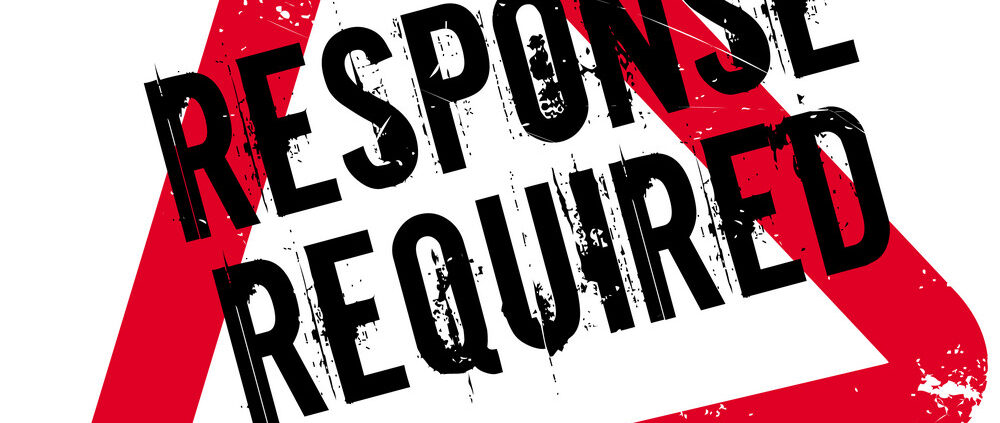Asking For A Response Avoids The Black Hole
Asking For A Response Avoids The Black Hole
We are in a series of posts on how to avoid the sermon sucking black hole that makes people forget by Monday what they heard in church on Sunday. In the last post I introduced the first question that should be asked in evaluating your sermon: What was the point? In this post we’ll consider the second question of four evaluation question. The theme today is: asking for a response avoids the black hole of sermon failure. Again, I am generally following some thoughts here found in a book by David Mains, The Sermon Sucking Black Hole.
What Response Was Called For?
 So, the question to ask in evaluation is this: What response was called for? Think about your last few sermons. Was a clear response called for? Here’s David Mains’ reflection on this important question:
So, the question to ask in evaluation is this: What response was called for? Think about your last few sermons. Was a clear response called for? Here’s David Mains’ reflection on this important question:
“I’ve critiqued and edited hundreds of sermons from pastors for decades for our 50-Day Spiritual Adventure and Advent Celebration products; I’ve worked with pastors at the Mainstay Ministers Conferences (as many as 137 conferences a year; I’ve listened to hundreds of sermons in churches and classrooms. The vast majority do not have a clear response. Even the finalists in the sermon contest I judged (the 100 best sermons submitted) largely failed to ask for a clear response from their listeners.” (p. 23)
This challenge called me to look at my last few sermons. Did I ask for a clear response? Make no mistake about it: asking for a response avoids the black hole that sucks a sermon from peoples’ memories.
Where Do We Get the Idea for A Response?
 Usually, the Scripture passage you use will suggest the response. One of the sermons that I prepared recently was based on Matthew 18:3
Usually, the Scripture passage you use will suggest the response. One of the sermons that I prepared recently was based on Matthew 18:3
And he said: “Truly I tell you, unless you change and become like little children, you will never enter the kingdom of heaven.
The obvious response that is called for here is to “change”. But what does that mean? Jesus doesn’t describe what that means or how to do it. So…it’s a great time for a preacher to fill in the blanks. After describing the attitude of the disciples as people who wanted to be the “greatest in the Kingdom”, I explored several childish characteristics that I think Jesus had in mind:
Surveys on Children Coming to Faith
 Children are more open to God. One survey showed some astounding statistics about when people come to faith. Out of 1000 people who are active in church:
Children are more open to God. One survey showed some astounding statistics about when people come to faith. Out of 1000 people who are active in church:
- 548 came to believe and receive Jesus before the age of 20;
- 337 came to believe and receive between 20 and 30 years old;
- 96 between the ages of 30 and 40;
- 15 between 40 and 50;
- 3 between 50 and 60;
- 1 between 60 and 70.
Another survey done by the National Association of Evangelicals came up with similar statistics:
A survey from the National Association of Evangelicals (NAE) found that 63% of individuals become a Christian between the age of 4-14, with the median age being 11. The same survey also found that 34% of individuals become a Christian between the age of 15-29. According to this study, 97% of individuals become a Christian before the age of 30.
Children Experience More Joy
The average preschooler laughs about 400 times per day. The average adult, 15 times per day.
Children Are More Trusting
That’s why we adults try to keep them from natural trust to protect them.
Children Are More Open to Others
Enough said here.
Asking For A Response Avoids The Black Hole
So what response for this message? I asked people to pray for change in themselves, and to ask the Holy Spirit for a nudge when they become judgmental, untrusting, unjoyful, etc.
Do you get the point? When you are preparing your sermon, think about what response is appropriate. The reality is that when you ask for a response, you are tapping into the memories of people so that they will more likely think of your message later in the week.


